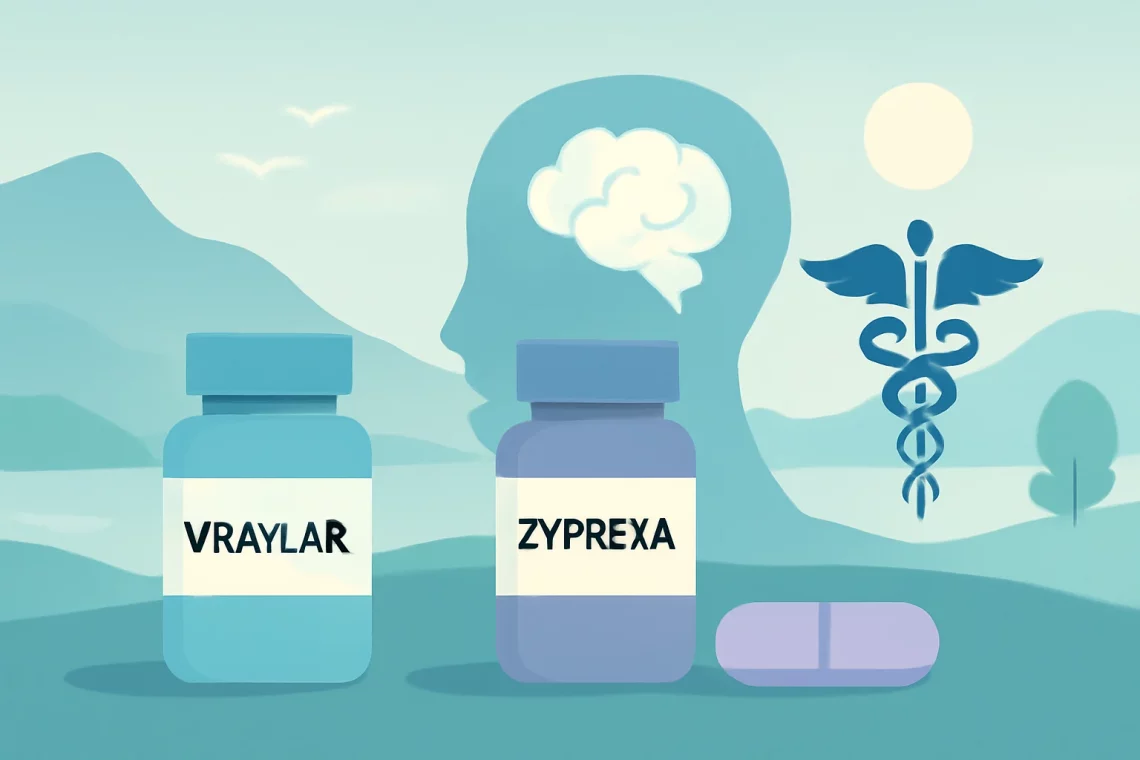-
Losartan vs Valsartan: Choosing the Right Medication for Hypertension
Losartan and Valsartan are two commonly prescribed medications that belong to a class of drugs known as angiotensin receptor blockers (ARBs). These medications are primarily used to manage hypertension and heart failure, providing significant benefits for those affected by these conditions. With rising rates of cardiovascular diseases globally, understanding the role and differences between these medications is increasingly important for patients and healthcare providers alike. Both Losartan and Valsartan function by blocking the action of a hormone called angiotensin II, which causes blood vessels to constrict. This action leads to lower blood pressure and reduced workload on the heart. Despite their similar mechanisms, there are nuances in their pharmacological profiles,…
-
Amoxicillin vs Zithromax: Key Differences and Uses Explained
The world of antibiotics is vast and complex, with various medications designed to treat different types of bacterial infections. Among the most frequently prescribed antibiotics are Amoxicillin and Zithromax, both of which are widely used in the medical field. While they share the common goal of combating bacterial infections, their mechanisms of action, spectrum of activity, side effects, and specific applications set them apart. Understanding the differences between these two medications is crucial for both healthcare providers and patients. Each antibiotic has its unique characteristics that make it more suitable for certain infections. The choice between Amoxicillin and Zithromax can significantly influence treatment outcomes, highlighting the importance of appropriate antibiotic…
-
Lexapro vs Effexor XR: Choosing the Right Antidepressant for You
Lexapro and Effexor XR are two commonly prescribed medications for the treatment of mood disorders, particularly depression and anxiety. As mental health awareness continues to grow, so does the interest in understanding the various options available for managing these conditions. These medications belong to different classes of antidepressants, each with its unique mechanisms of action, side effects, and benefits. In today’s fast-paced world, many individuals seek effective treatment options to help them cope with the challenges of daily life. The choice between Lexapro and Effexor XR can significantly impact a patient’s journey toward mental wellness. Understanding the differences and similarities between these two medications is essential for making informed decisions…
-
Loratadine vs Diphenhydramine: Which Antihistamine Is Right for You?
Loratadine and diphenhydramine are two commonly used antihistamines that play a crucial role in managing allergy symptoms. They are both effective in alleviating conditions such as hay fever, allergic rhinitis, and other allergic reactions. While they serve a similar purpose, the way they work and their side effects can vary significantly, making it essential for users to understand the differences between them. Antihistamines function by blocking the action of histamine, a substance in the body that causes allergic symptoms. However, there are two primary categories of antihistamines: first-generation and second-generation. Diphenhydramine falls into the first-generation category, while loratadine is classified as a second-generation antihistamine. This distinction is essential for users,…
-
Lexapro vs Wellbutrin: Choosing the Right Antidepressant for You
The landscape of mental health medications is broad and diverse, with various options available to help individuals manage their conditions. Among these, Lexapro and Wellbutrin stand out as popular choices for treating depression and anxiety. While both medications aim to alleviate symptoms of mood disorders, they belong to different classes of antidepressants and work through distinct mechanisms in the brain. Understanding the nuances of these medications can empower patients and their healthcare providers to make informed decisions about treatment options. As mental health continues to gain recognition, it is essential to explore the efficacy, side effects, and overall patient experience associated with different medications. Each person’s journey with mental health…
-
Doxycycline vs Levaquin: Key Differences and Uses Explained
Doxycycline and Levaquin are two antibiotics commonly prescribed to treat a variety of bacterial infections. Both medications have distinct mechanisms of action, efficacy profiles, and side effects, which can significantly influence their use in clinical settings. Understanding the differences between these two drugs is vital for healthcare professionals and patients alike when making informed decisions about treatment options. The choice between Doxycycline and Levaquin may depend on various factors, including the type of infection being treated, patient medical history, and potential drug interactions. Doxycycline, a tetracycline antibiotic, is effective against a broad spectrum of bacteria and is often utilized for infections such as acne, respiratory tract infections, and certain sexually…
-
Entresto vs Enalapril: Which Heart Failure Treatment Is Right for You?
Heart disease remains one of the leading causes of mortality worldwide, making effective treatment options more crucial than ever. Among the most commonly prescribed medications for heart failure are Entresto and Enalapril. Both of these drugs serve to improve heart function and alleviate symptoms associated with heart failure, but they do so through different mechanisms and active ingredients. Understanding the differences between these two medications can empower patients and caregivers to make informed choices regarding heart health. Entresto is a combination drug that includes sacubitril and valsartan, while Enalapril belongs to the class of drugs known as ACE inhibitors. Each medication has its unique benefits and side effects, and the…
-
Metformin vs Rybelsus: Which Diabetes Treatment is Right for You?
Metformin and Rybelsus are two medications frequently discussed in the realm of diabetes management, each with its unique characteristics and benefits. Understanding the differences, benefits, and mechanisms of action of these drugs is crucial for patients, healthcare providers, and anyone interested in diabetes care. As diabetes continues to be a prevalent health concern worldwide, effective management strategies are essential for improving patients’ quality of life and preventing complications associated with the disease. Metformin has long been regarded as a first-line treatment for type 2 diabetes, with a well-established safety and efficacy profile. It primarily works by improving insulin sensitivity and decreasing liver glucose production, thereby helping to regulate blood sugar…
-
Azithromycin vs Doxycycline: Which Antibiotic Is Right for You?
-
Vraylar vs Zyprexa: A Comprehensive Comparison of Two Antipsychotics
Mental health issues have become increasingly prevalent in today’s society, prompting a growing need for effective treatment options. Among the various medications available for managing conditions such as schizophrenia and bipolar disorder, Vraylar and Zyprexa stand out as popular choices. These medications belong to a class known as atypical antipsychotics, which are designed to address the symptoms often associated with these mental health disorders. Understanding the differences between Vraylar and Zyprexa is crucial for patients, caregivers, and healthcare professionals alike. Each medication has its unique mechanism of action, side effects, and efficacy profiles, making it essential to evaluate them carefully in the context of individual patient needs. In this discussion,…







































